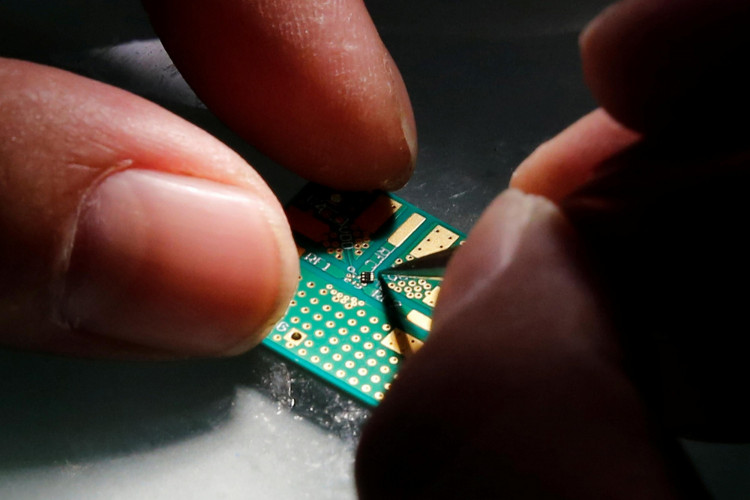China has established its third state-backed investment fund to bolster its semiconductor industry, committing 344 billion yuan ($47.5 billion) in an effort to achieve technological self-sufficiency. This move underscores President Xi Jinping's intensified drive to fortify China's semiconductor capabilities, especially amid escalating U.S. export controls designed to limit Beijing's access to advanced technology for potential military applications.
The China Integrated Circuit Industry Investment Fund, commonly referred to as the "Big Fund," officially launched its third phase on May 24. This phase, registered under the Beijing Municipal Administration for Market Regulation, is the largest to date, significantly surpassing the earlier two phases in terms of capital raised. The fund's creation has already had a positive market impact, with the CES CN Semiconductor Index rallying more than 3%, marking its biggest one-day gain in over a month.
China's Ministry of Finance stands as the largest stakeholder in the new fund, holding a 17% share with a contribution of 60 billion yuan. The China Development Bank Capital follows with a 10.5% stake. Additionally, five major Chinese banks-Industrial and Commercial Bank of China, China Construction Bank, Agricultural Bank of China, Bank of China, and Bank of Communications-each contributed around 6% of the total capital. This substantial investment reflects the coordinated national effort to develop domestic semiconductor capabilities.
The first phase of the Big Fund, established in 2014, had a registered capital of 138.7 billion yuan, while the second phase in 2019 raised 204 billion yuan. These funds have played crucial roles in financing China's leading chip manufacturers, including Semiconductor Manufacturing International Corporation (SMIC) and Hua Hong Semiconductor, as well as Yangtze Memory Technologies, a prominent flash memory producer. The third phase aims to extend these efforts, with a particular focus on advancing domestic chip manufacturing equipment.
This strategic investment comes as China faces stringent export restrictions from the U.S., which have barred Chinese firms from accessing the latest semiconductor technologies from key international suppliers like ASML, Applied Materials, and Tokyo Electron. The restrictions are part of a broader U.S. strategy to curb China's technological advancements that could potentially enhance its military capabilities.
"The third phase of the Big Fund is critical for China to maintain and accelerate its development in the semiconductor sector," said a senior Chinese official familiar with the initiative. "This investment will not only support existing projects but also drive new innovations in semiconductor manufacturing."
The urgency of China's semiconductor self-sufficiency has been amplified by geopolitical tensions, prompting swift and substantial financial commitments. The Ministry of Finance did not immediately respond to requests for further comment on the specifics of the investment strategy.
In addition to governmental support, the Big Fund III plans to hire at least two institutions to manage its capital, ensuring efficient and strategic investment. This move highlights the importance of professional management in achieving the fund's ambitious goals.
China's aggressive push into the semiconductor sector has significant implications for the global tech industry. As China enhances its domestic capabilities, it may reduce its dependency on foreign technology, potentially reshaping the global semiconductor supply chain. However, the effectiveness of these efforts remains to be seen, particularly in the face of ongoing U.S. sanctions and technological embargoes.
The broader economic and political ramifications of China's semiconductor strategy are profound. By investing heavily in its tech sector, China is signaling its commitment to overcoming external challenges and positioning itself as a formidable player in the global technology landscape.





